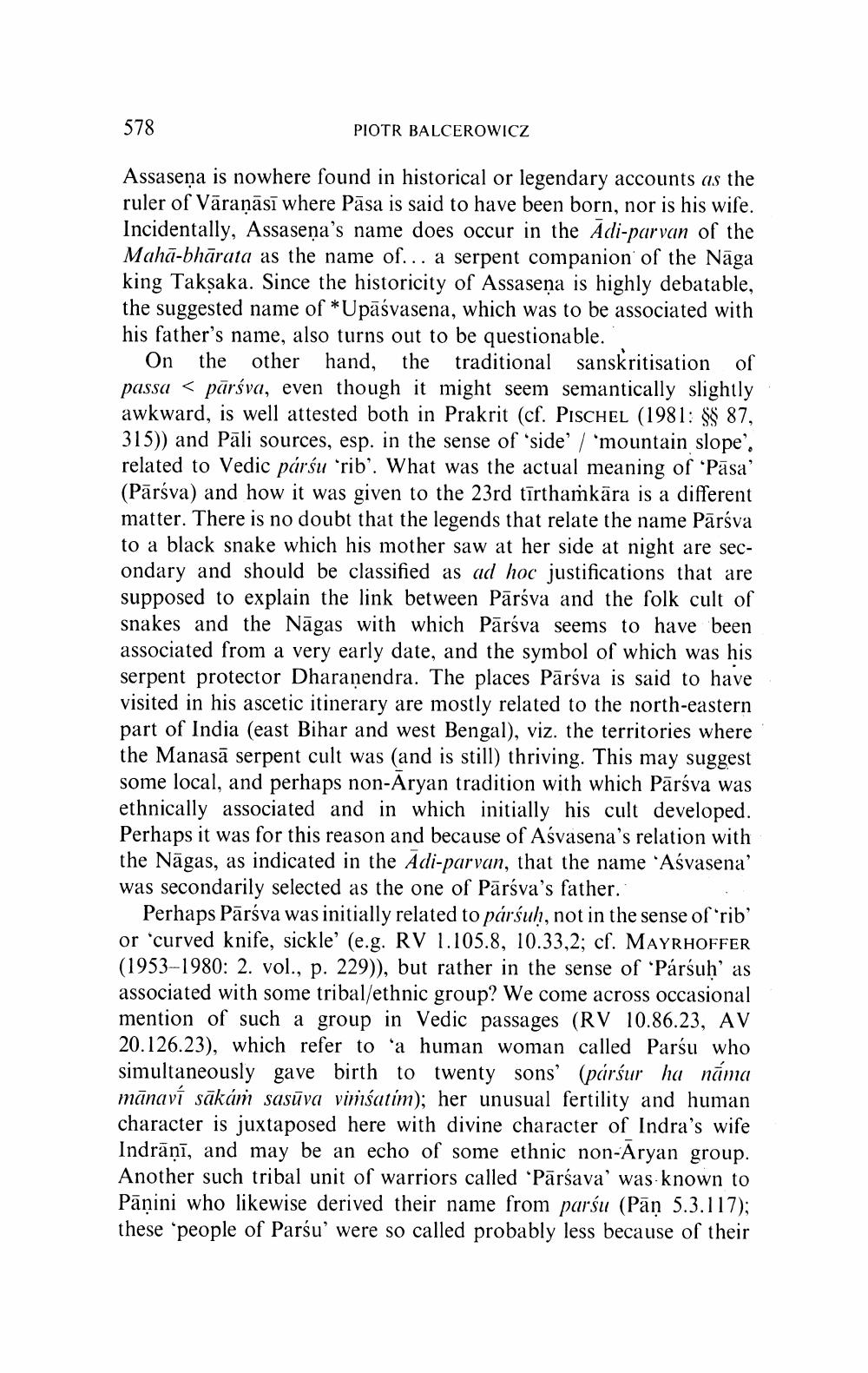Book Title: Monks Monarchs And Materialists Author(s): Piotr Balcerowicz Publisher: Piotr Balcerowicz View full book textPage 8
________________ 578 PIOTR BALCEROWICZ Assasena is nowhere found in historical or legendary accounts as the ruler of Vāranāsī where Pāsa is said to have been born, nor is his wife. Incidentally, Assasena's name does occur in the Adi-parvan of the Mahā-bhārata as the name of... a serpent companion of the Nāga king Takşaka. Since the historicity of Assasena is highly debatable, the suggested name of *Upāśvasena, which was to be associated with his father's name, also turns out to be questionable. On the other hand, the traditional sanskritisation of passa < pārsva, even though it might seem semantically slightly awkward, is well attested both in Prakrit (cf. PISCHEL (1981: $S 87, 315)) and Pāli sources, esp. in the sense of 'side' / 'mountain slope. related to Vedic pársu ‘rib'. What was the actual meaning of 'Pāsa? (Parsva) and how it was given to the 23rd tīrthamkāra is a different matter. There is no doubt that the legends that relate the name Pārsva to a black snake which his mother saw at her side at night are secondary and should be classified as ad hoc justifications that are supposed to explain the link between Pārsva and the folk cult of snakes and the Nāgas with which Pārsva seems to have been associated from a very early date, and the symbol of which was his serpent protector Dharanendra. The places Pārsva is said to have visited in his ascetic itinerary are mostly related to the north-eastern part of India (east Bihar and west Bengal), viz. the territories where the Manasā serpent cult was (and is still) thriving. This may suggest some local, and perhaps non-Aryan tradition with which Pārsva was ethnically associated and in which initially his cult developed. Perhaps it was for this reason and because of Aśvasena's relation with the Nāgas, as indicated in the Adi-parvan, that the name 'Asvasena' was secondarily selected as the one of Pārsva's father. Perhaps Pārsva was initially related to párśuḥ, not in the sense of 'rib' or 'curved knife, sickle' (e.g. RV 1.105.8, 10.33,2; cf. MAYRHOFFER (1953-1980: 2. vol., p. 229)), but rather in the sense of 'Parsuh' as associated with some tribal/ethnic group? We come across occasional mention of such a group in Vedic passages (RV 10.86.23, AV 20.126.23), which refer to a human woman called Parsu who simultaneously gave birth to twenty sons' (párśur ha náma mānaví sākám sasūva vimśatim); her unusual fertility and human character is juxtaposed here with divine character of Indra's wife Indrāṇī, and may be an echo of some ethnic non-Aryan group. Another such tribal unit of warriors called Pārsava' was known to Pāṇini who likewise derived their name from parsu (Pāņ 5.3.117); these people of Parsu' were so called probably less because of theirPage Navigation
1 ... 6 7 8 9 10 11 12
